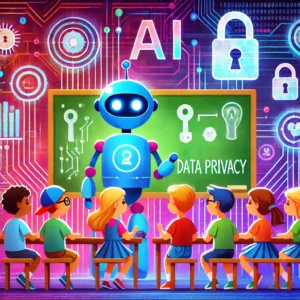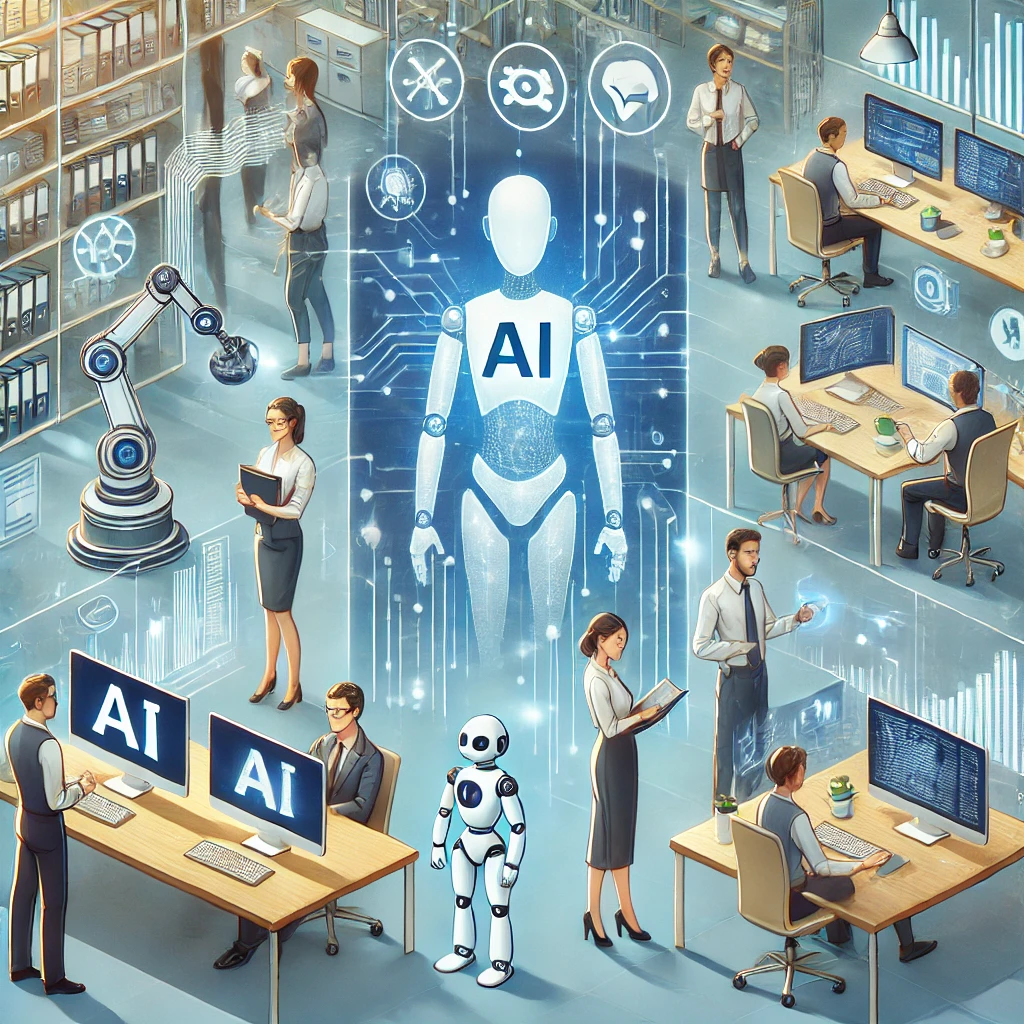
Why Understanding AI and Data Privacy is a Life Skill for Kids
Why is it important for kids to understand AI and data privacy? Discover how teaching these concepts empowers children to navigate the digital world safely and responsibly.
Disclosure: We are supported by our audience. We may earn a commission when you take action after following links from our site. Learn More.
AI in the workplace (AI) is no longer a futuristic concept—it’s a present-day reality reshaping how we work. From streamlining operations to enhancing creativity, AI is redefining roles across industries. But what exactly does this transformation look like, and how can businesses and employees prepare for this shift?
Let’s explore how AI is impacting the workplace, its benefits, challenges, and what you need to know to stay ahead.

AI is becoming an integral part of workplaces across sectors, automating repetitive tasks, analyzing vast amounts of data, and even supporting decision-making processes. Some key areas where AI is making waves include:

AI automates time-consuming tasks, enabling teams to focus on creative and complex projects. For instance, tools like Zapier AI in the workplace automate workflows by connecting apps and triggering actions based on predefined conditions.
AI-powered analytics platforms like Tableau with AI integrations provide actionable insights by visualizing complex data trends. These tools help leaders make data-driven decisions faster and more accurately.
AI chatbots and virtual assistants, such as ChatGPT, are transforming how teams communicate and interact with customers. They handle queries, draft responses, and provide round-the-clock support.
HR departments are using AI tools like HireVue and LinkedIn Talent Insights to analyze resumes, match candidates to roles, and even conduct initial interview screenings. These tools help eliminate biases and accelerate hiring processes.
AI-driven e-learning platforms like Coursera AI create personalized learning paths, helping employees stay updated with the latest skills and industry trends concerning AI in the workplace.


While AI offers immense potential, it’s not without challenges:



AI is not just a tool—it’s a catalyst for workplace evolution. As AI systems become more sophisticated, they’ll seamlessly integrate with human workflows, creating hybrid environments where humans and AI collaborate effectively.
For employees, the focus will shift toward leveraging AI to enhance creativity, strategy, and innovation. For businesses, embracing AI will be essential to staying competitive and agile in a rapidly changing landscape.
The workplace of the future is here, powered by AI. By understanding its potential and challenges, you can position yourself or your organization to thrive in this transformative era.
Want to stay ahead of workplace trends? Sign up for our newsletter for more insights on AI, productivity, and the future of work. And don’t forget to read some of our other Zippy Insights.

Why is it important for kids to understand AI and data privacy? Discover how teaching these concepts empowers children to navigate the digital world safely and responsibly.

AI text generators are transforming creativity, helping writers, marketers, and creators produce content faster and with less stress. These tools leverage advanced algorithms and natural language processing to generate human-like text in seconds, saving time and breaking through creative blocks. Discover how AI can supercharge your workflow, whether you’re drafting blog posts, creating social media content, or writing product descriptions. Ready to elevate your creative game? Explore the power of AI and unlock new possibilities!

Generative AI (Artificial Intelligence) has transformed how we communicate, create, and problem-solve, and at the forefront of this revolution is ChatGPT—a prime example of generative

Get weekly updates of our AI and Tech content
There was a problem reporting this post.
Please confirm you want to block this member.
You will no longer be able to:
Please allow a few minutes for this process to complete.
Responses